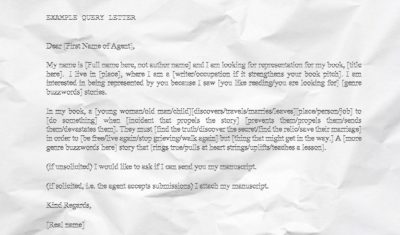So you’ve had enough of trying to sell books on your own and you want to get a book deal. How do you become a published or hybrid author? First, you’ll need a literary agent.
How to write a query letter to an agent
1. Find out the name of the agent. Don’t assume their gender. “Dear Sir,” will kill all chances to a female agent, for example.
2. Stalk them on social media, find out what they like, what they read, and what they have said in interviews about authors in the past. Look at “buzzwords”, i.e. the words they use to describe the books they want to find, e.g., dark fantasy, sword and sorcery epics, and decide which buzzwords to include in your letter.
3. Introduce yourself, but not extensively. Do not mention personal details unless it’s relevant to your book. Mention a niche fact relating to your book. Something like, “My name is Algernon Pervis, and I have been an historian for twelve years at the University of Engleton” or “My name is Christina Heenie and I have extensive interest in Canadian romance literature of the 80s.”
4. Don’t quote their author lists back to them. “I see you have represented Donna Tartt and Bret Easton Ellis, and that makes me think you could represent my book.” Instead, use words that will evoke those authors. “I write dark, twisted literary fiction set in New York.”
5. Use a neat font and type a clean email from a good email address (If your email is “mommyicecream@ or “cherrycheeks@” or something similar, you may want to make yourself a new Gmail address, just your name, something like “clarebrown123@”. Most agents want email, although you may find some want a letter in the mail. In this case, type on a fresh sheet of white typing paper and use a plain white letter envelope. You should not use notelets or silly stationery, nor should you send photos or anything but your query letter and the manuscript.
6. Type your manuscript on clean white typing paper of letter size. Make sure you follow the agent’s instructions for spacing, page numbers, and titling your manuscript. They will usually also have a fastening preference, such as staple one corner, do not fix your manuscript, or use one paper fastener on the left margin etc. Follow this religiously. Consider the presentation your first test to see if you are a fit for the agent.
7. Remember: If the agent wants to represent you, they will not forget to contact you! So don’t send silly “I was wondering how you were getting along” emails.
8. If you don’t hear back in ten weeks, it is safe to move on to the next agent on your list. Don’t even think of writing an angry letter to any agent on rejection. It is a very small world. That agent may tell all their friends about you…
Get an Editorial Review | Get Amazon Sales & Reviews | Get Edited | Get Beta Readers | Enter the SPR Book Awards | Other Marketing Services
























Leave A Comment